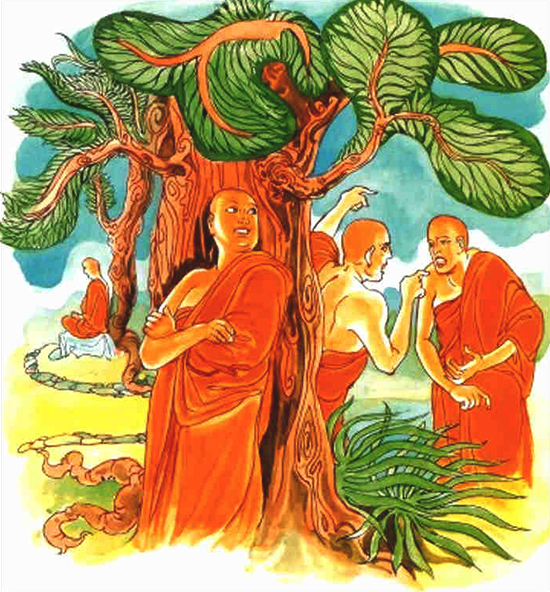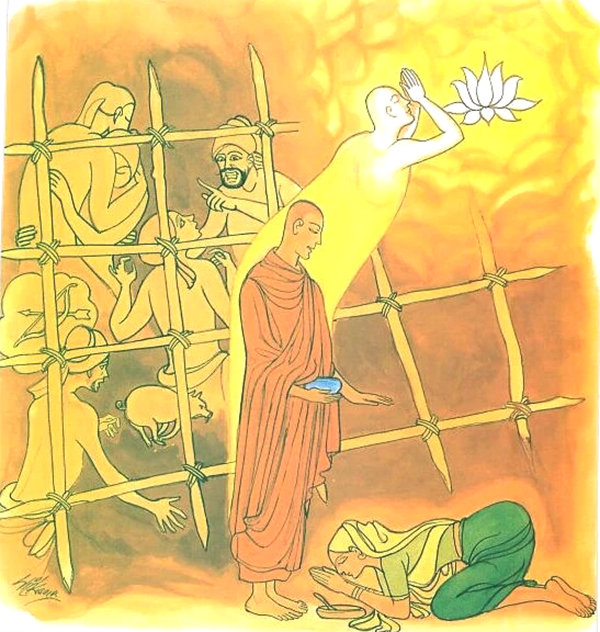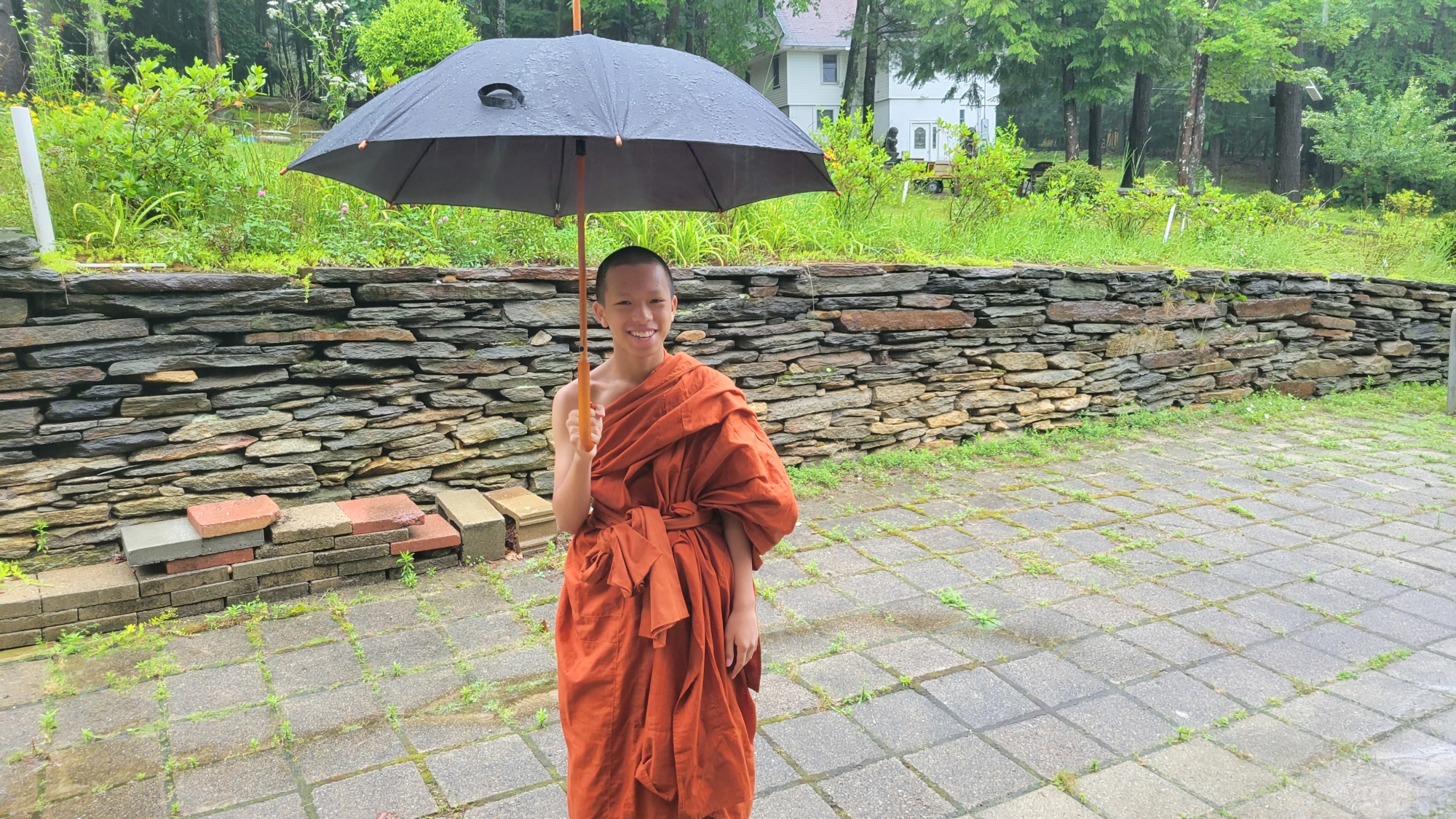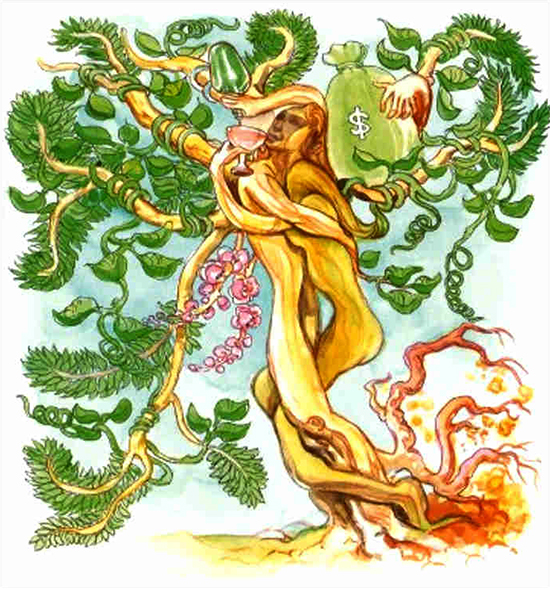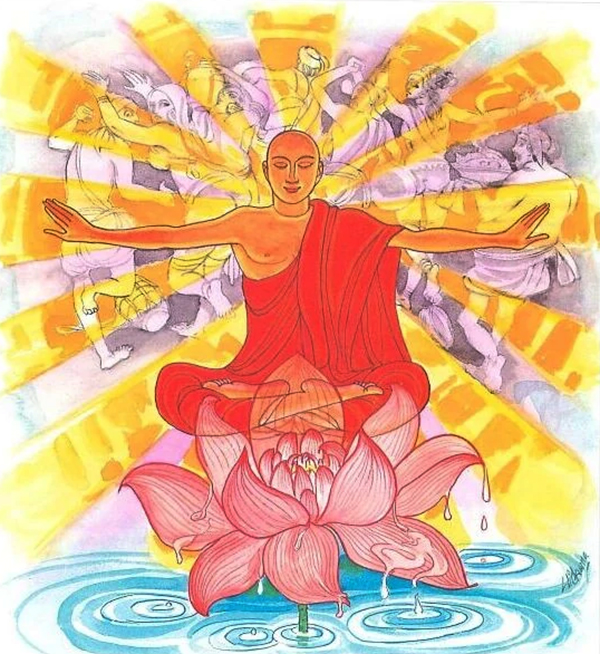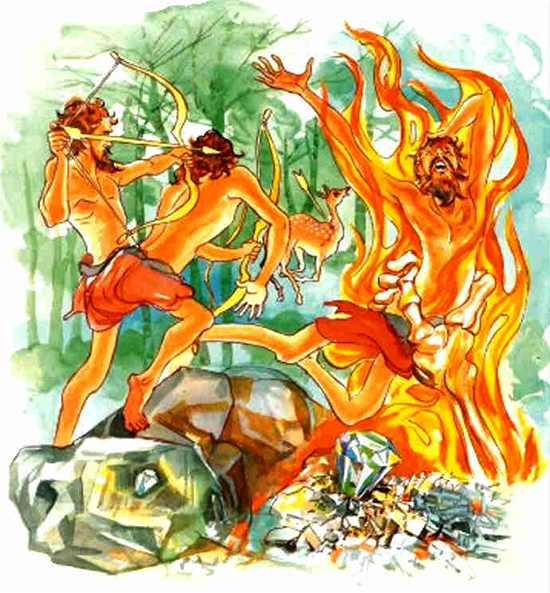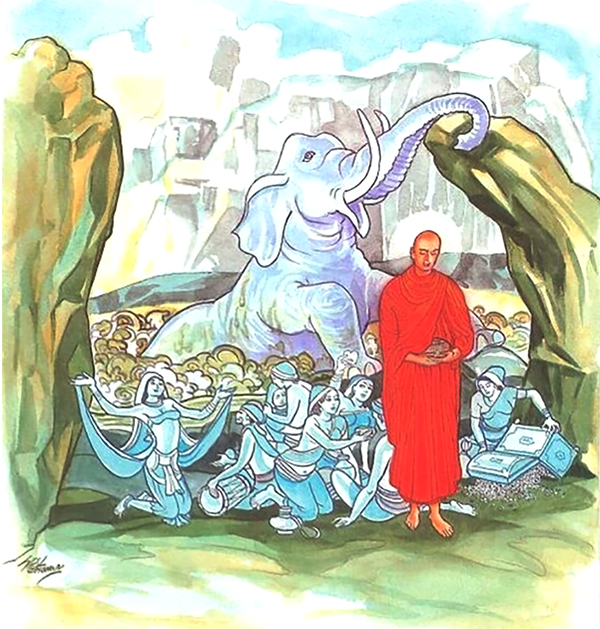The Story of Schism in the Order
Verse 163: It is easy to do things that are bad and unbeneficial to oneself, but it is, indeed, most difficult to do things that are beneficial and good.
The Story of Schism in the Order
While residing at the Veluvana monastery, the Buddha uttered Verse (163) of this book, with reference to Devadatta, who committed the offence of causing a schism in the Order of the bhikkhus.
On one occasion, while the Buddha was giving a discourse in the Veluvana monastery, Devadatta came to him and suggested that since the Buddha was getting old, the duties of the Order should be entrusted to him (Devadatta); but the Buddha rejected his proposal and also rebuked him and called him a “spittle swallowor” (Khelasika). From that time, Devadatta felt very bitter towards the Buddha. He even tried to kill the Buddha three times, but all his attempts failed. Later, Devadatta tried another tactic. This time, he came to the Buddha and proposed five rules of discipline for the bhikkhus to observe throughout their lives.
He proposed:
(i) that the bhikkhus should live in the forest;
(ii) that they should live only on food received on alms-rounds;
(iii) that they should wear robes made only from pieces of cloth collected from rubbish heaps;
(iv) that they should reside under trees; and
(v) that they should not take fish or meat. Continue reading


